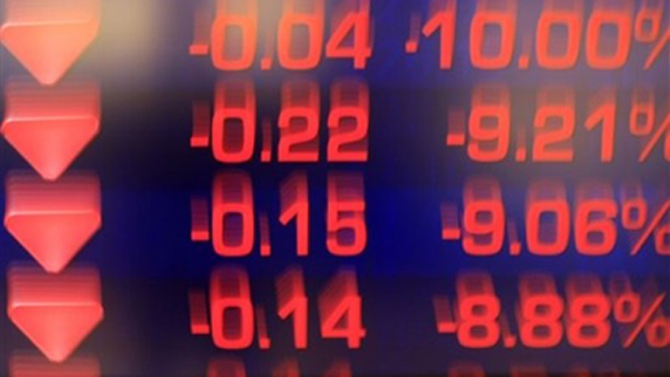Global Leaders Struggle to Calm Recession Fears

WASHINGTON — The world's major economies are pledging to take strong actions to restore financial stability and calm financial markets that plunged on Thursday over renewed fears that the global economy was headed toward a new recession.
Finance officials of the Group of 20 major economies issued a statement late Thursday saying they were committed to a strong and coordinated response to renewed challenges coming from the European debt crisis and weak economic growth in the United States and other countries.
The finance officials of traditional economic powers such as the United States, Japan and Germany and major emerging nations such as China want to demonstrate strong resolve in the hope that it will calm jitters that had sent financial markets down sharply.
"We are taking strong actions to maintain financial stability, restore confidence and support growth," the G-20 joint statement said. "We commit to take all actions to preserve the stability of banking systems and financial markets as required."
Treasury Secretary Timothy Geithner and Federal Reserve Chairman Ben Bernanke represented the United States at the meeting.
The G-20 group, which includes officials from countries that represent 85 percent of the global economy, had not been originally scheduled to issue a statement after Thursday's meeting. But officials said the decision was made to put out a joint statement as a way to show resolve in the face of Thursday's market turbulence.
French Finance Minister Francoise Baroin told reporters at a late night briefing that the statement represented a "strong global" response to what he called a "very serious situation."
He said the G-20 group believed "there is a way out of this crisis."
A senior US Treasury official who briefed reporters on condition of anonymity to discuss the closed-door discussions said that all the countries felt there was a sense of urgency to take strong actions to deal with the financial market turmoil.
Investors are worried that Europe's debt crisis could destabilize the global economy. The United States is limping along with slow growth, 14 million unemployed and millions stuck with homes worth less than what is owed on the mortgage.
The Dow Jones industrial average sank 391 points for the day. The second-straight day of massive losses on Wall Street coincided with the start of the annual meeting for the 187-nation International Monetary Fund and its sister lending institution, the World Bank.
"The current economic situation is entering a dangerous phase," said Christine Lagarde, the head of the IMF.
"I still think a double-dip recession for the world's major economies is unlikely, but my confidence in that belief is being eroded daily," World Bank President Robert Zoellick said.
On Wednesday, stocks had tumbled after the Federal Reserve expressed new concerns about the U.S. economy and the growing risks in Europe. The Fed also announced a plan to try to lower long-term interest rates further by shuffling the makeup of its portfolio.
The gathering of world finance leaders comes at a perilous time in Europe.
Greece could default on its debt next month unless it receives a $10.9 billion installment from a bailout fund managed by the European Central Bank, the European Commission and the IMF.
A default could destabilize other financially troubled European countries, such as Portugal, Ireland, Spain and Italy. It would also deal a blow to many European banks, which are large holders of Greek government bonds.
"What is needed and what certainly we hope to generate ... is the political leadership, and the degree of synchronization that needs to happen for that path to recovery to be made possible," Lagarde had told reporters earlier Thursday.
Brazil, India and China and other emerging economies favor efforts by President Barack Obama to tackle the US budget deficit. And they want the 17 countries that use the euro currency to address the debt crisis in their region.
Major emerging economies including Brazil, India, China, Russia and South Africa said in a statement that they would "consider, if necessary, providing support through the IMF or other international financial institutions" to address the European debt crisis.
Finance officials from the group played down reports that they might purchase government debt of troubled European countries.
1 | 2 next page »
- The ‘Virtuous Circle’ of Carrot & Stick Sanctions
- Suu Kyi Curbs Election Campaign After Falling Ill
- Burma Business Roundup (Saturday, March 24)
- Sea Tribunal Ruling: Bangladesh’s Gain, Burma’s Paying
- Burma Business Roundup (Saturday, March 17)
- Floating Toward Honesty: How Burma’s Bent Finances Can Go Straight
- End Near for Burma's Dual Currency Exchange
- Burma Business Roundup (Saturday, March 19)
- Chinese Trade Expo to Focus on Burma
- Dawei Port in Doubt with Bangkok Hub Plan
